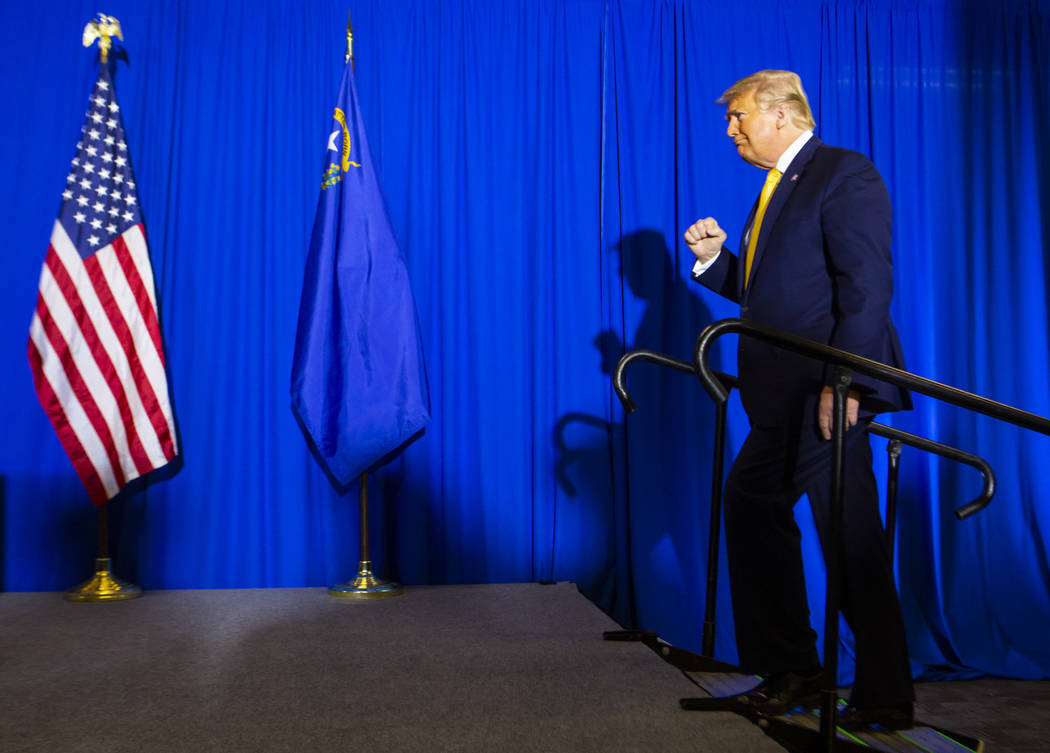STEVE SEBELIUS: No fraud, lawbreaking in mail election
Nevada’s June 9 vote-by-mail primary is not illegal and does not promote fraud. And anyone who says differently is either breathtakingly uninformed or lying.
On Wednesday, May 20 President Donald Trump tweeted this:
“State of Nevada ‘thinks’ that they can send out illegal vote by mail ballots, creating a great Voter Fraud scenario for the State and the U.S. They can’t! If they do, I “think” I can hold up funds to the State. Sorry, but you must not cheat in elections,” Trump tweeted, tagging the acting head of the Office of Management and Budget and the U.S. Treasury Department.
First, mail ballots in Nevada are not illegal.
About 10 percent of Nevadans vote by mail in every election, including military members serving overseas. Some voting precincts are so small that voters there automatically get a ballot delivered by mail.
But state law also explicitly authorizes a county clerk to designate any precinct as a mail precinct, regardless of size, if the secretary of state agrees.
And that’s precisely what happened this time around: All 17 county elections officials in Nevada — from red counties and blue — asked Secretary of State Barbara Cegavske to designate all the precincts in Nevada as mail-voting precincts. Cegavske agreed. They did this to minimize the personal interaction that would have taken place at traditional polling sites to reduce the spread of COVID-19.
Some criticize Clark County for sending ballots to both active and inactive registered voters in response to a Democratic lawsuit that seeks to prevent disenfranchisement.
Inactive voters are those who have had election mailers returned as undeliverable. They are vetted, legal voters, many of whom have simply not updated their addresses. But they are eligible to vote in any election, and many do.
The decision to send them ballots may have been against the initial elections plan — why spend money sending a ballot to a person at an address you know for a fact is incorrect? — but it was not in any sense illegal.
Second, the mail election also does not create “a great Voter Fraud scenario.”
There are safeguards in place, most notably the requirement for the voter to sign the outside of her or his ballot. That signature is matched against the signature on file in county elections offices. If it matches, the ballot can be counted; if not, it is set aside, and officials follow up with that voter to determine if the vote is legitimate.
Not only that, but ballots are specifically coded to individual voters. You can’t simply print one up.
Also, fraudulent voting is a felony, one that carries stiff punishments.
The conservative Heritage Foundation identifies six cases of voter fraud in Nevada between 2011 and 2017, all of which have one thing in common: They all resulted in a criminal conviction. And when you consider that more than 2.6 million votes were cast in general elections during that time, the percentage of identified fraud per vote cast is vanishingly small.
A conservative group raised the issue of voter fraud in a lawsuit recently. Chief U.S. District Court Judge Miranda Du dismissed the argument as without merit.
“The court finds that defendants’ interests in protecting the health and safety of Nevada’s voters and to safeguard the voting franchise in light of the COVID-19 pandemic far outweigh any burden on plaintiffs’ right to vote, particularly when that burden is premised on a speculative claim of voter fraud resulting in dilution of votes,” Du wrote.
The judge added later: “Their claim of voter fraud is without any factual basis.”
Finally, it’s impossible to believe that Cegavske — a Republican, notwithstanding the strictly nonpartisan way she’s handled her duties — would sign off on election procedures that would allow fraud, especially fraud that would harm Republicans.
While the president’s claims aren’t factual, they can be useful in casting doubt on the results of an election. He did the same thing in 2016, insisting the election was “rigged” before he won (in the Electoral College). He later claimed he’d have won the popular vote, too, but for millions of “illegal votes.”
And more insidiously, false claims can depress turnout. Why bother voting if fraud is rampant?
Here’s why: Because the mail-in primary is completely legal and speculative claims of fraud aren’t supported by evidence. Anybody who says differently either doesn’t know or is intentionally distorting the truth.
Don’t fall for it. If you’re an eligible registered voter, get educated, fill out your mail ballot and send it in.











